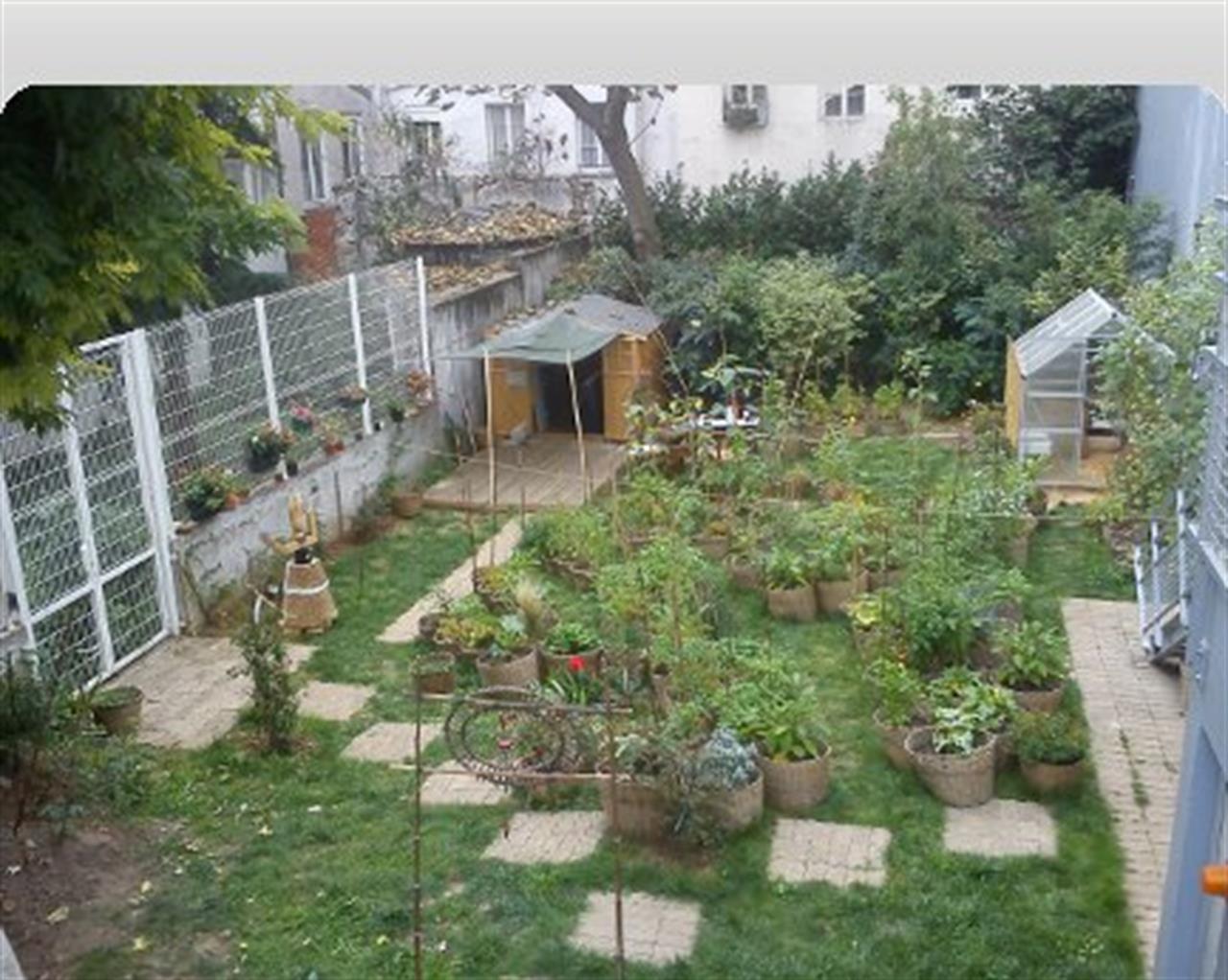In the heart of the Goutte d’Or, a multi-cultural working-class Parisian area, where French people live together with Arabs, Africans and immigrants from all over the world, there is a little corner of countryside, a urban garden “lost in the middle of a forest of grayish and faded facades”.
L’Univert is the sixth social insertion garden supported by the city of Paris since 2008. It is aimed at favoring the reintegration of excluded and disadvantaged people, people who benefit from subsidies, long time unemployed people, homeless, drug addicts. The garden is also opened to all the inhabitants of the area and to all people who want to go to the garden and have a good time.
The story of l’Univert is strictly connected to the story of Caroline Falletta, responsible of the garden. A 41 year old architect who is also trained in the area of insertion through culture, she came to know social insertion gardens thanks to an internship she did at another garden of this kind in Paris. Having lived in the Goutte d’Or area for 15 years, she then decided to create a similar structure in her area. L’Univert opened in September 2010.
As Caroline explains: “The garden is only a pretext for people to feel better and be together.”
Can you explain this further?
Coming to l’Univert is not only necessarily about gardening, it is a way to meet together, to create social bonds, sharing knowledge and experiences. It is also a way to make people who haven’t worked for a long time regain confidence through speaking in front of other people, which is something they find very difficult to do, as they have been isolated.
The garden favors the social insertion. It is addressed to people who are still too fragile for the professional insertion which requires that people respect regular hours. At l’Univert people can come when they want. The idea is to make them come to the garden regularly, to make them arrive on time, so that little by little they can be ready for the professional insertion.
Why did you decide to start this project?
The garden gives an answer to three main problems of the area identified by politicians and local representatives.
First there were many needs at population level: in fact there were many unemployed and isolated people in the area. Then there were many environmental needs because the area is very densely populated: there are many buildings that are very close one to another, and not many green areas. Finally it was necessary to create environmental awareness.
Do people respect the environment now?
Before the garden was opened the place was full of waste, people threw things through the windows… Now all this does not happen anymore. People respect the garden and everyone is happy to come to do some gardening and to enjoy nature.
Who are the partners of the project?
The garden is supported by Halage, the association for which I work, specialized in insertion projects through economic activity and in professional training in the environmental area. Halage helped me in funding the project and Paris Habitat, the largest public housing agency in France, proposed to cultivate a 150 m2 piece of landin a block of flats that it manages. Both public partners, such as the city of Paris, and private foundations have financed L’Univert so far.
I am currently looking for financing and investors for the year 2012, to perpetuate the project.
Do you have other projects for the future?
At the moment I am very much concentrated on this garden, as it is a new project. Next year we would like to enlarge our structure. The garden, 135 m2 big, is situated in the back of a police station where there is some space that could be used to make the garden bigger.
http://lunivertgo.blogspot.com
http://www.jardinons-ensemble.org/spip.php?article2028
Vuoi accedere all'archivio di VITA?
Con un abbonamento annuale potrai sfogliare più di 50 numeri del nostro magazine, da gennaio 2020 ad oggi: ogni numero una storia sempre attuale. Oltre a tutti i contenuti extra come le newsletter tematiche, i podcast, le infografiche e gli approfondimenti.

